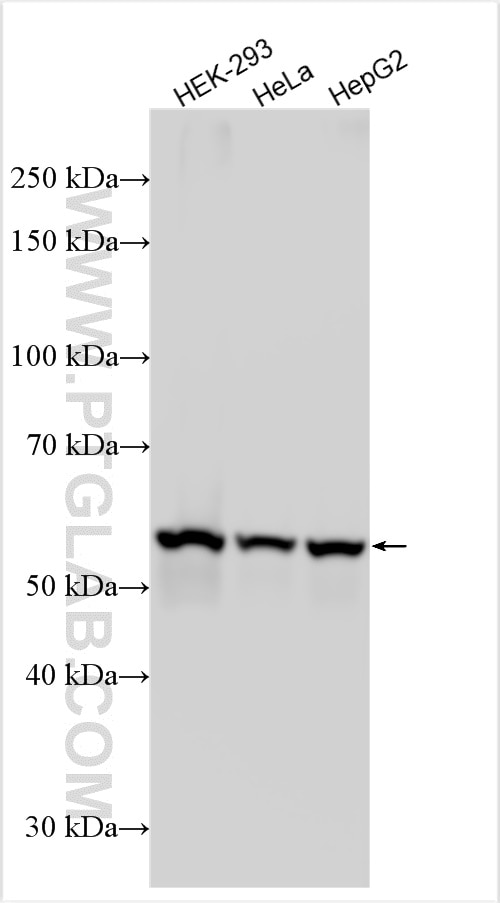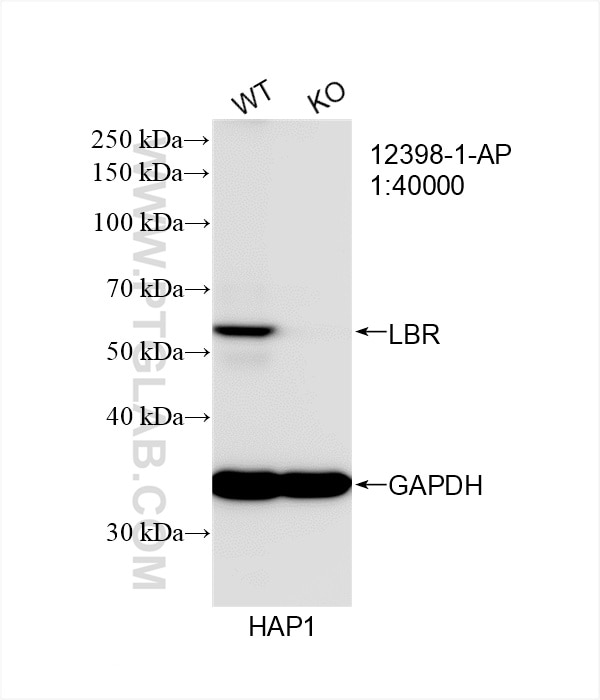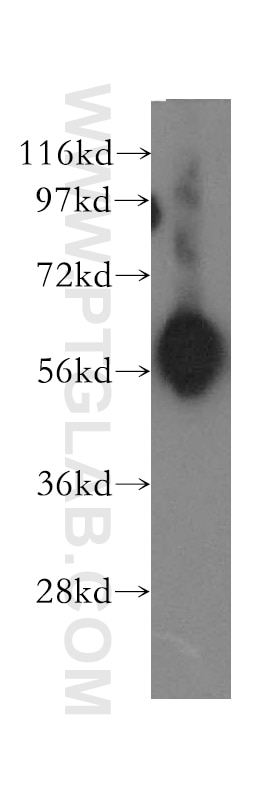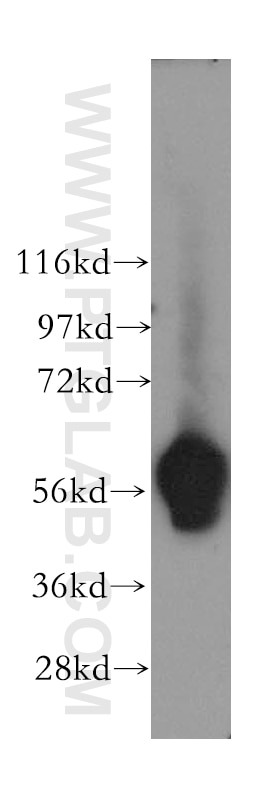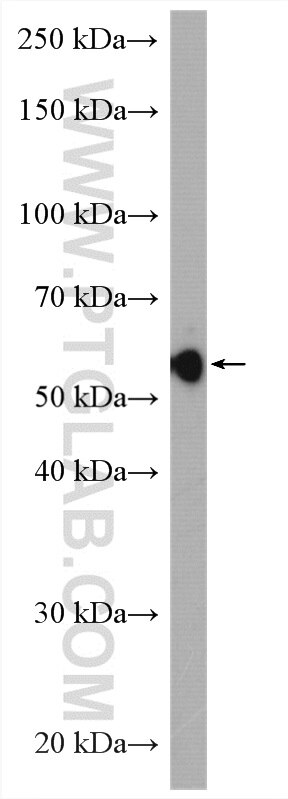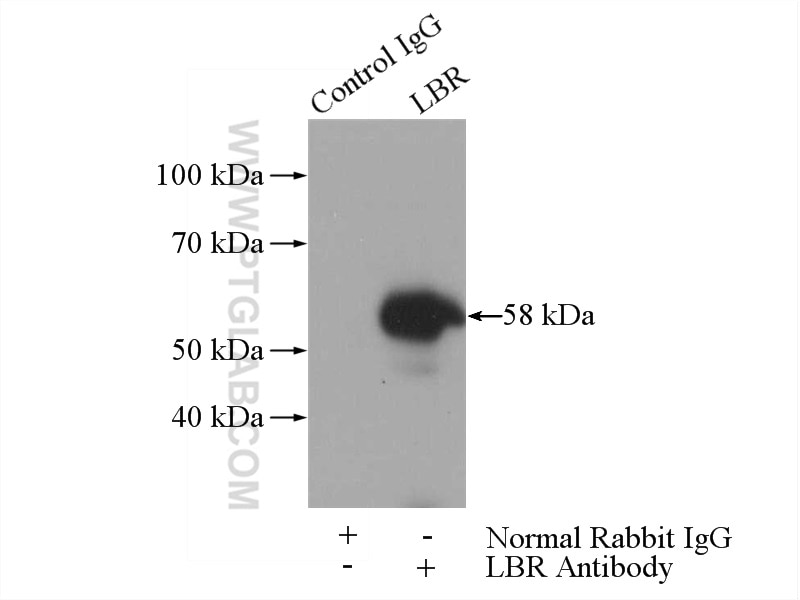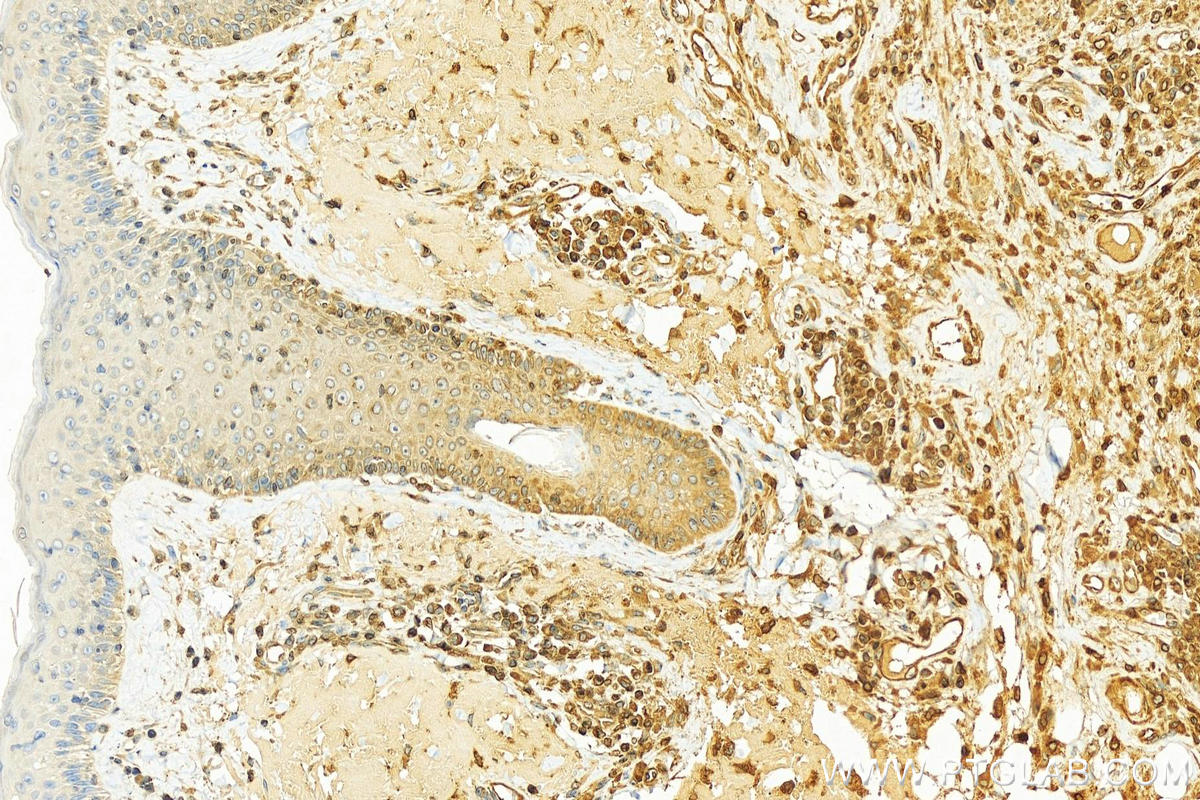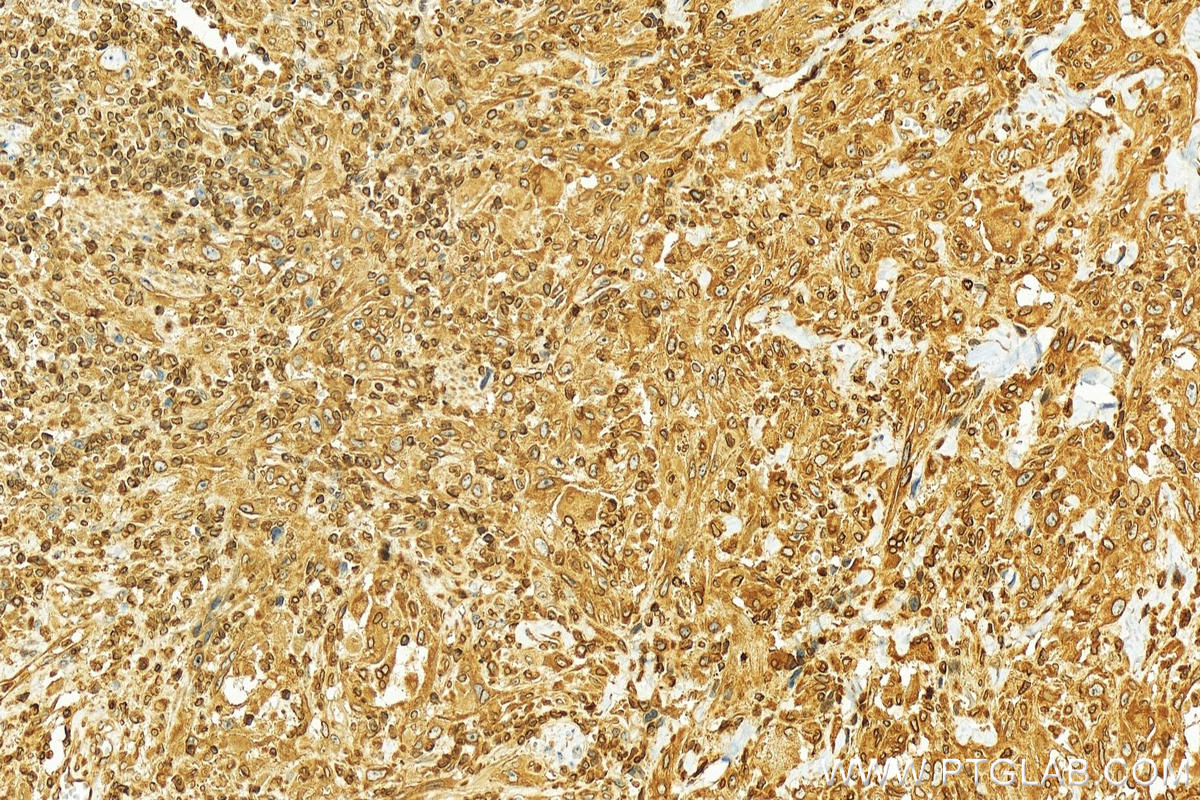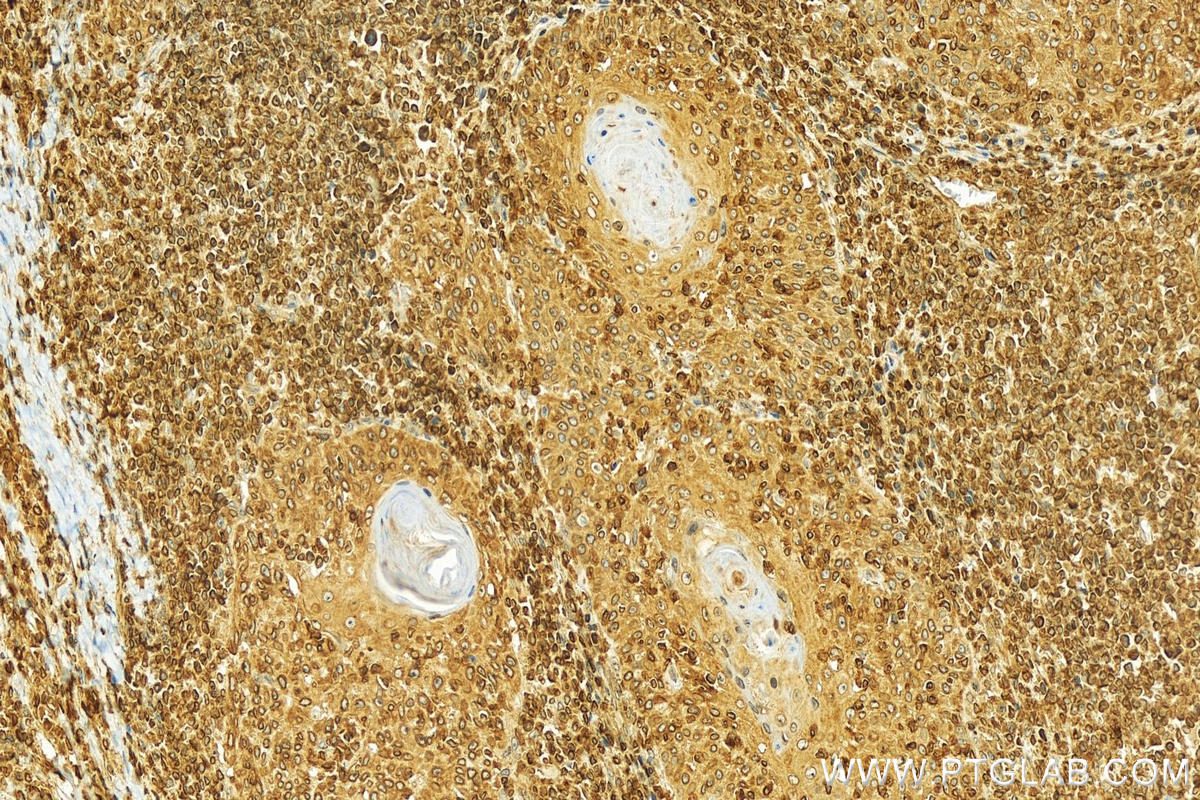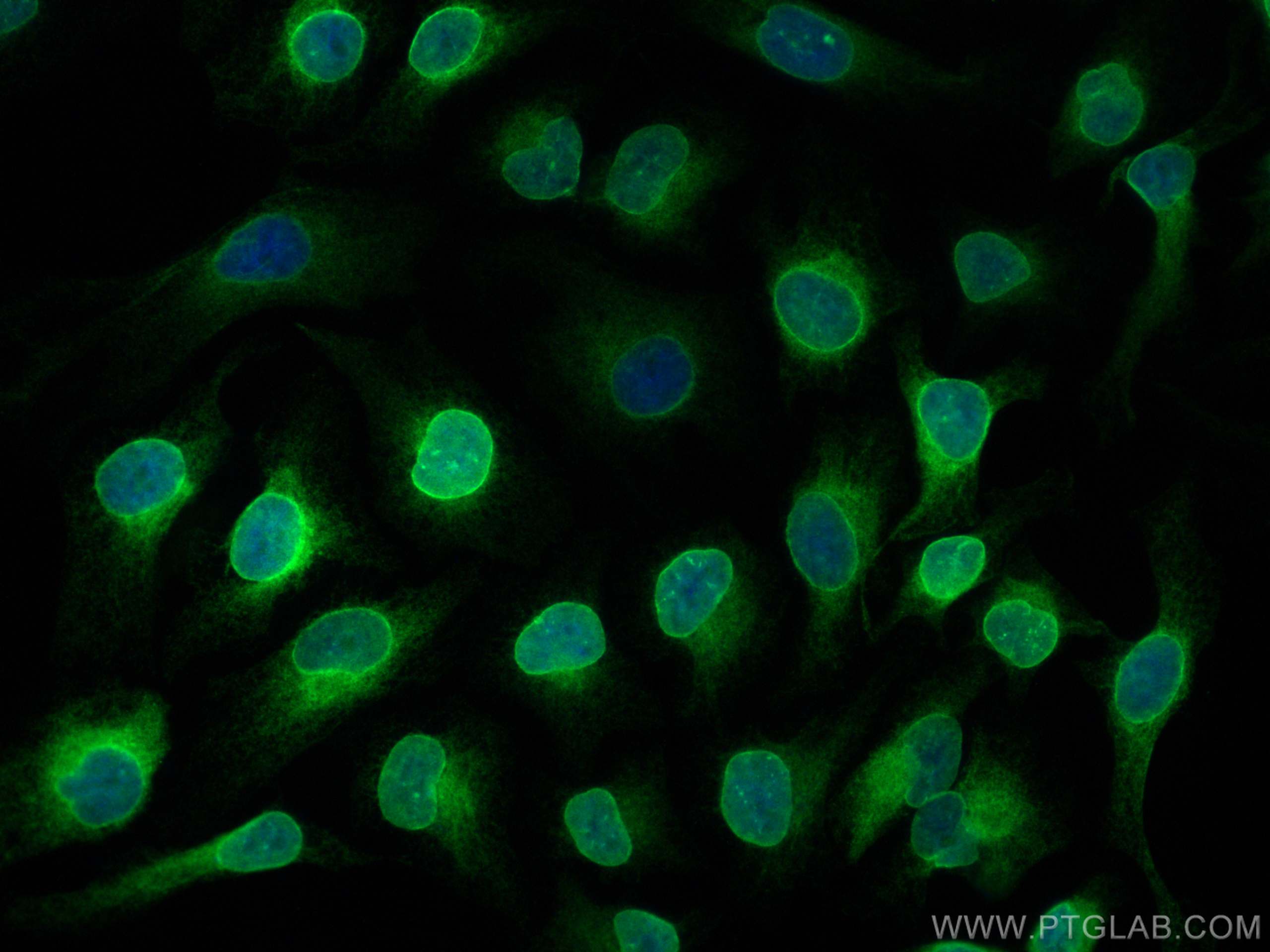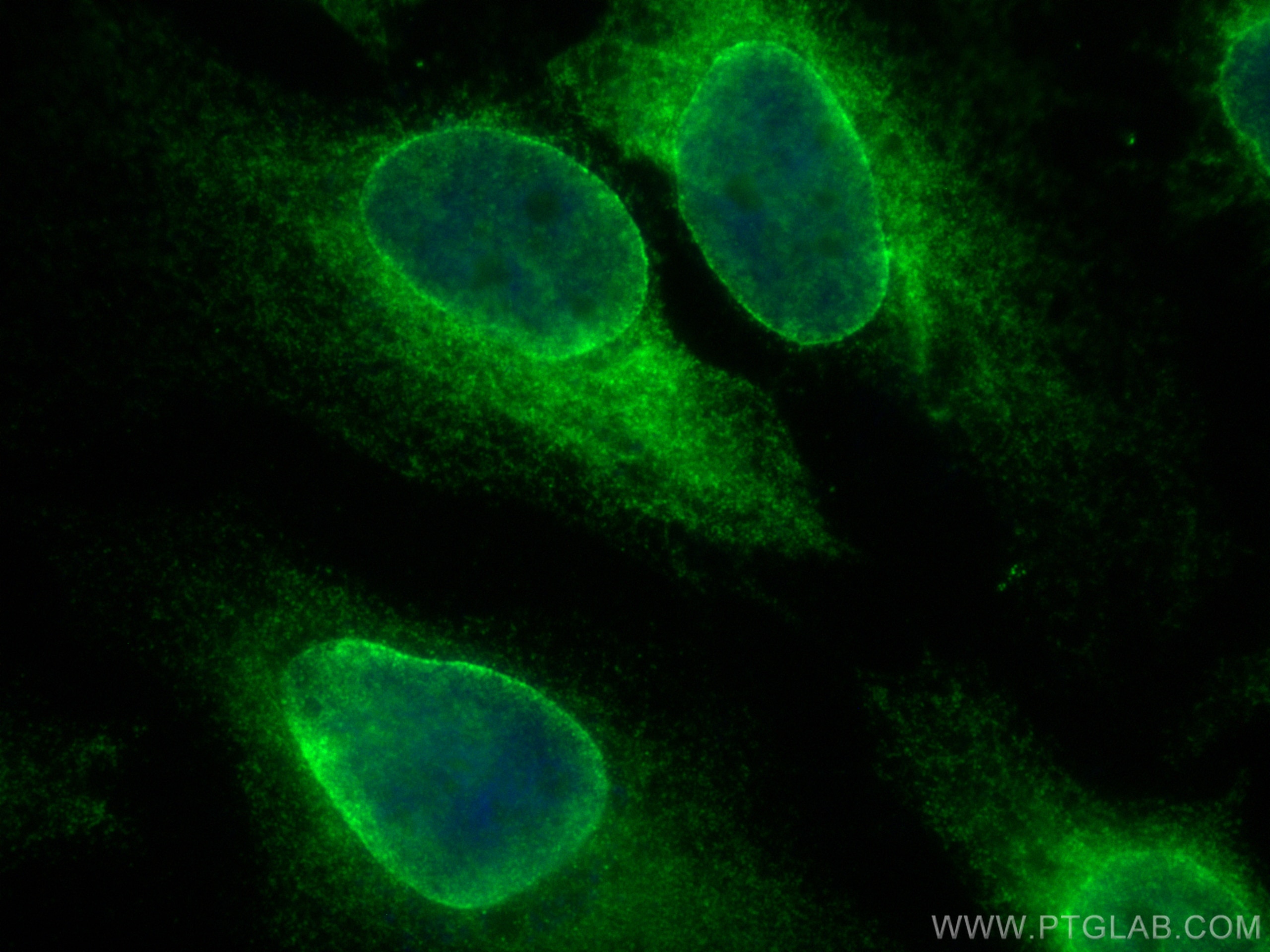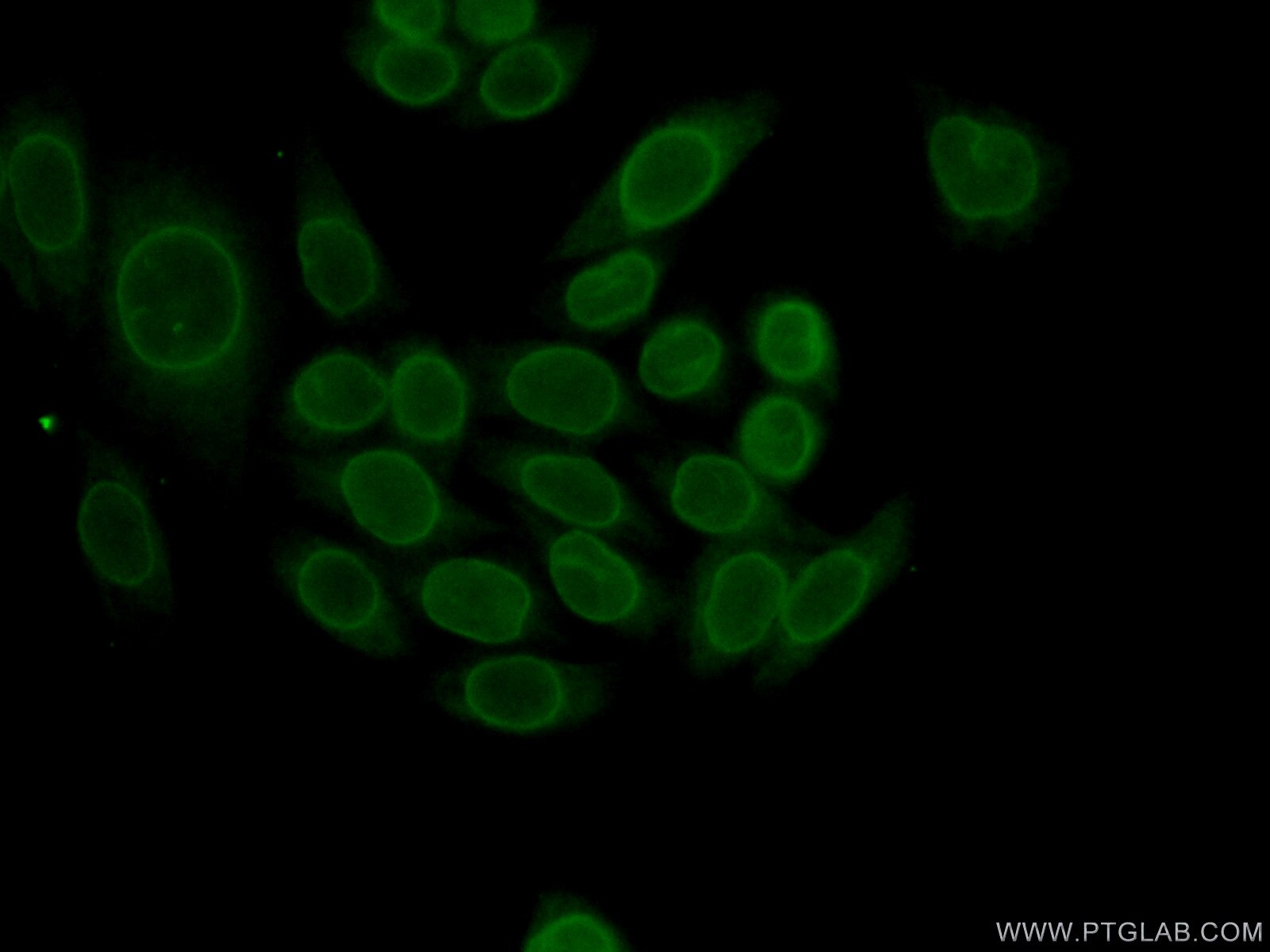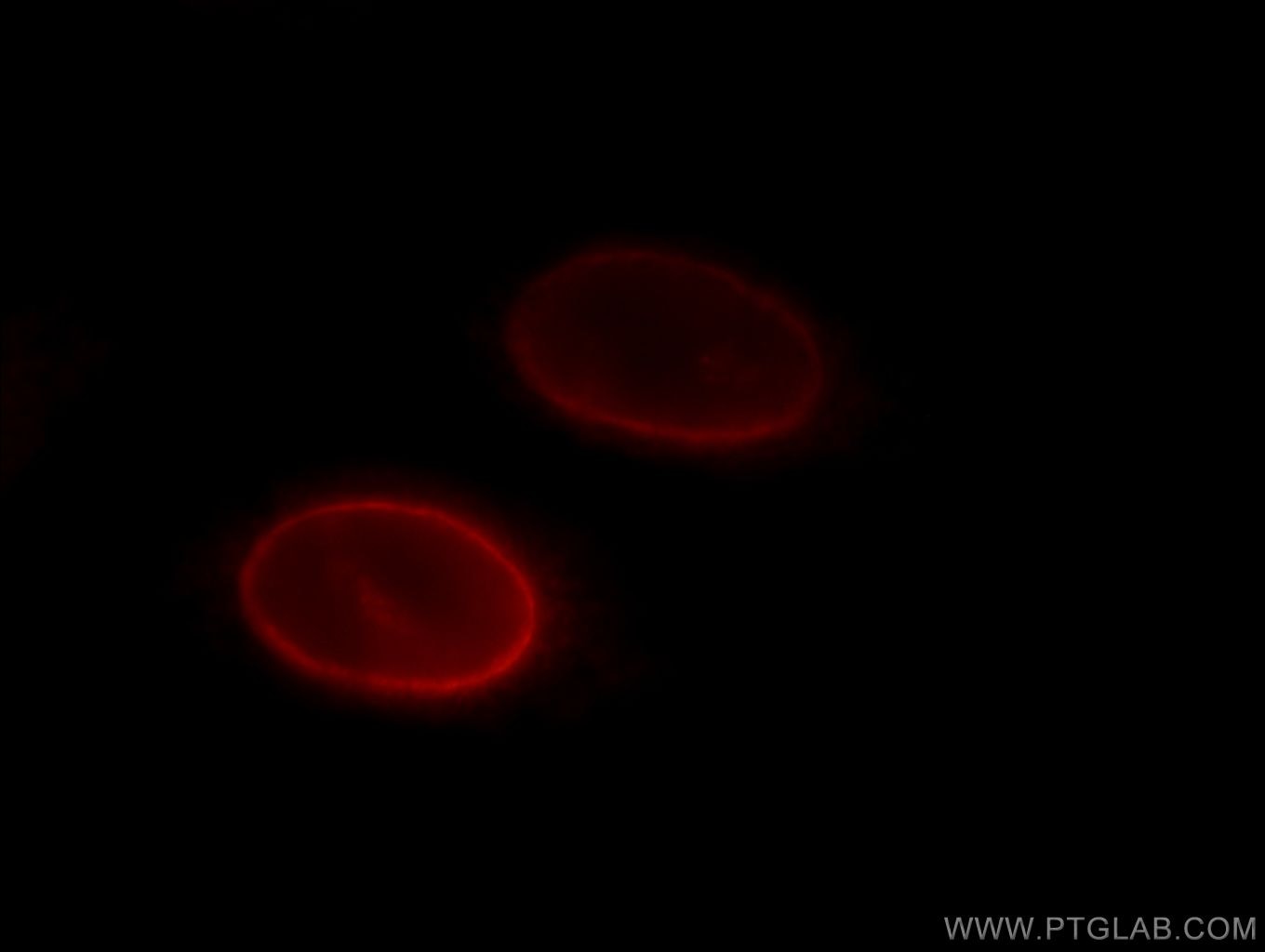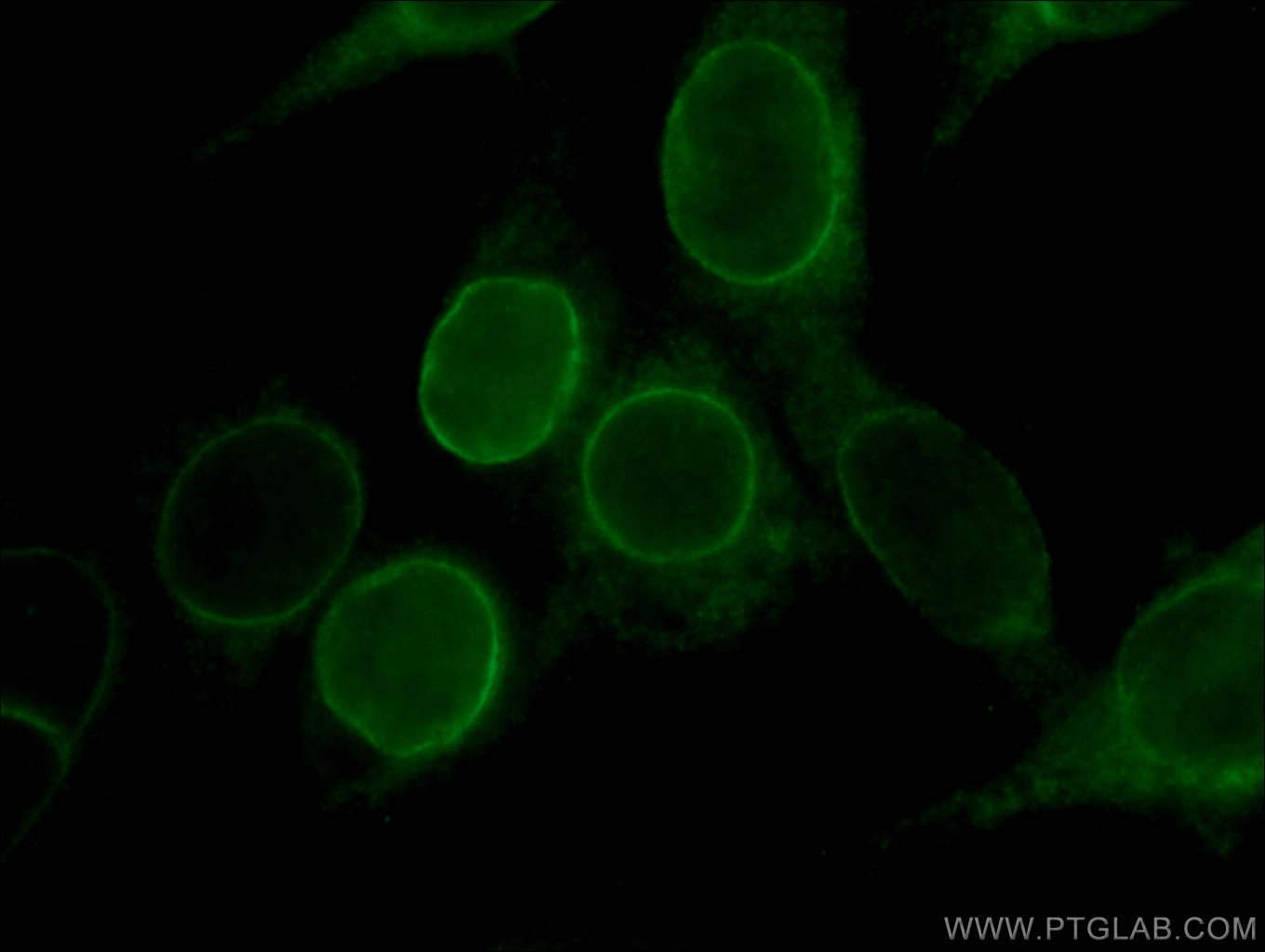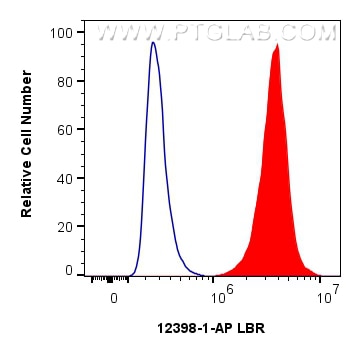Tested Applications
| Positive WB detected in | HEK-293 cells, A375 cells, C2C12 cells, HAP1 cells, human brain tissue, HeLa cells, HepG2 cells |
| Positive IP detected in | A375 cells |
| Positive IHC detected in | human skin cancer tissue Note: suggested antigen retrieval with TE buffer pH 9.0; (*) Alternatively, antigen retrieval may be performed with citrate buffer pH 6.0 |
| Positive IF/ICC detected in | HeLa cells, HepG2 cells, C6 cells |
| Positive FC (Intra) detected in | HeLa cells |
Recommended dilution
| Application | Dilution |
|---|---|
| Western Blot (WB) | WB : 1:5000-1:50000 |
| Immunoprecipitation (IP) | IP : 0.5-4.0 ug for 1.0-3.0 mg of total protein lysate |
| Immunohistochemistry (IHC) | IHC : 1:200-1:800 |
| Immunofluorescence (IF)/ICC | IF/ICC : 1:300-1:1200 |
| Flow Cytometry (FC) (INTRA) | FC (INTRA) : 0.40 ug per 10^6 cells in a 100 µl suspension |
| It is recommended that this reagent should be titrated in each testing system to obtain optimal results. | |
| Sample-dependent, Check data in validation data gallery. | |
Published Applications
| WB | See 6 publications below |
| IF | See 4 publications below |
| IP | See 1 publications below |
| CoIP | See 1 publications below |
| ChIP | See 1 publications below |
Product Information
12398-1-AP targets LBR in WB, IHC, IF/ICC, FC (Intra), IP, CoIP, ChIP, ELISA applications and shows reactivity with human, mouse, rat samples.
| Tested Reactivity | human, mouse, rat |
| Cited Reactivity | human, mouse |
| Host / Isotype | Rabbit / IgG |
| Class | Polyclonal |
| Type | Antibody |
| Immunogen |
CatNo: Ag3088 Product name: Recombinant human LBR protein Source: e coli.-derived, PGEX-4T Tag: GST Domain: 1-210 aa of BC020079 Sequence: MPSRKFADGEVVRGRWPGSSLYYEVEILSHDSTSQLYTVKYKDGTELELKENDIKPLTSFRQRKGGSTSSSPSRRRGSRSRSRSRSPGRPPKSARRSASASHQADIKEARREVEVKLTPLILKPFGNSISRYNGEPEHIERNDAPHKNTQEKFSLSQESSYIATQYSLRPRREEVKLKEIDSKEEKYVAKELAVRTFEVTPIRAKDLEFG Predict reactive species |
| Full Name | lamin B receptor |
| Calculated Molecular Weight | 615 aa, 71 kDa |
| Observed Molecular Weight | 58 kDa |
| GenBank Accession Number | BC020079 |
| Gene Symbol | LBR |
| Gene ID (NCBI) | 3930 |
| RRID | AB_2138334 |
| Conjugate | Unconjugated |
| Form | Liquid |
| Purification Method | Antigen affinity purification |
| UNIPROT ID | Q14739 |
| Storage Buffer | PBS with 0.02% sodium azide and 50% glycerol, pH 7.3. |
| Storage Conditions | Store at -20°C. Stable for one year after shipment. Aliquoting is unnecessary for -20oC storage. 20ul sizes contain 0.1% BSA. |
Background Information
Lamin-B receptor (LBR) is an integral membrane protein of the inner nuclear membrane that contains a hydrophilic N-terminal end protruding into the nucleoplasm, eight hydrophobic segments that span the membrane and a short, nucleoplasmic C-terminal tail (PMID: 28858257). LBR anchors the lamina and the heterochromatin to the inner nuclear membrane (PMID: 10828963; 28858257). It is also essential for cholesterol synthesis (PMID: 27336722). Mutations of the LBR gene have been associated with autosomal recessive HEM/Greenberg skeletal dysplasia and Pelger-Huët anomaly and Greenberg skeletal dysplasia (PMID: 12618959; 12490533). The calculated molecular mass of LBR is 71 kDa, which is larger than the apparent molecular mass of 58 kDa, probably due to the aberrant migration of membrane proteins subjected to SDS-PAGE (PMID: 2847165; 2170422).
Protocols
| Product Specific Protocols | |
|---|---|
| FC protocol for LBR antibody 12398-1-AP | Download protocol |
| IF protocol for LBR antibody 12398-1-AP | Download protocol |
| IHC protocol for LBR antibody 12398-1-AP | Download protocol |
| IP protocol for LBR antibody 12398-1-AP | Download protocol |
| WB protocol for LBR antibody 12398-1-AP | Download protocol |
| Standard Protocols | |
|---|---|
| Click here to view our Standard Protocols |
Publications
| Species | Application | Title |
|---|---|---|
Mol Cell Interaction of tau with HNRNPA2B1 and N6-methyladenosine RNA mediates the progression of tauopathy. | ||
Nat Commun PRC1 collaborates with SMCHD1 to fold the X-chromosome and spread Xist RNA between chromosome compartments. | ||
PLoS Genet RCC1L (WBSCR16) isoforms coordinate mitochondrial ribosome assembly through their interaction with GTPases. | ||
J Cell Sci Emery-Dreifuss muscular dystrophy mutations impair TRC40-mediated targeting of emerin to the inner nuclear membrane. | ||
J Cell Mol Med Novel long non-coding RNA CYB561-5 promotes aerobic glycolysis and tumorigenesis by interacting with basigin in non-small cell lung cancer. | ||
Mol Cell Biol Interactome analysis reveals a novel role for RAD6 in the regulation of proteasome activity and localization in response to DNA damage. |

